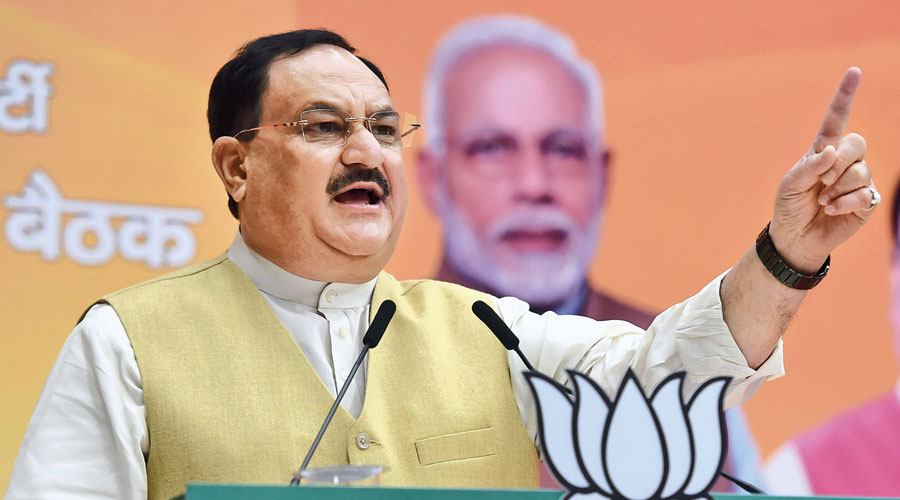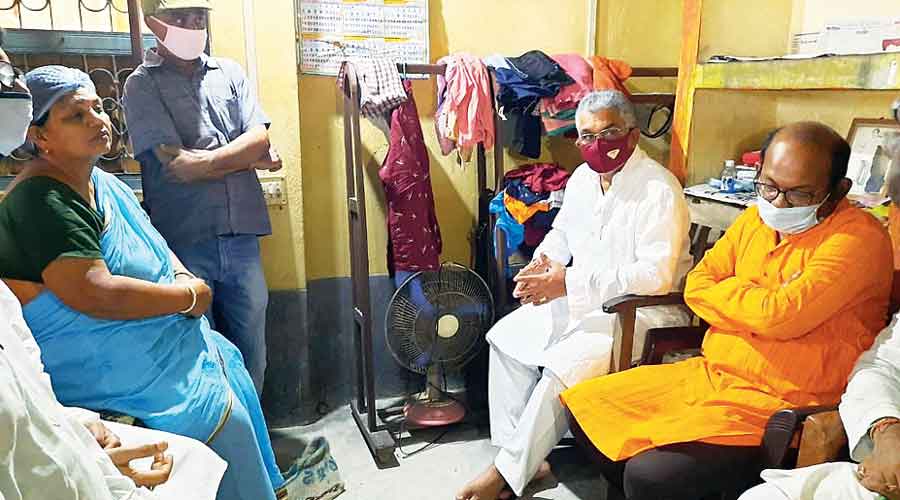The fig leaf has been dropped. “Anti-Hindu” has become the weapon of choice for the BJP in its quest to capture Bengal.
BJP national president J.P. Nadda on Thursday told the Bengal party leadership to highlight chief minister Mamata Banerjee’s “anti-Hindu approach”.
“Mamatadi announced a lockdown on August 5 when the foundation stone for the Ram Mandir was laid (in Ayodhya).… However, she lifted the lockdown on the day of Bakrid. This proves her anti-Hindu approach,” Nadda told the BJP’s newly constituted Bengal state committee during an online meeting.
“Our workers should make people understand that this is her politics of appeasement to stay in power,” Nadda added.
The crux of the plank is in itself not new — the BJP had used a polarising campaign and reaped rich dividends in the Lok Sabha elections.
But when a national president of a mainstream party openly describes an elected chief minister in such communal terms in the middle of national crises on multiple fronts, it does not betray a bankruptcy of ideas alone.
The reckless label also takes it for granted that Bengal, once the battlefield of progressive discourse even though the communal card had been played by individuals occasionally in some seats, can easily be made to dance to such toxic tunes.
Nadda was economical with the truth, too. Had Nadda not been playing mischief, he would have said the whole truth while handling a subject involving multiple religions: in the same announcement that exempted Bakrid, the Mamata government had exempted Independence Day, too, from the lockdown. The days had fallen on different Saturdays.
Besides, several full-lockdown days in Bengal have been changed for reasons ranging from proximity to national exams to events important for multiple groups of people. Nadda singled out one day.
Fifty state committee members, including Bengal unit president Dilip Ghosh, Mukul Roy and Rahul Sinha, and national leaders such as Kailash Vijayvargiya and Arvind Menon were present at Maheshwari Bhavan in central Calcutta to attend the videoconference addressed by Nadda.
Not all of them need any encouragement or lesson from Nadda to play the polarisation card. Yet, it was an unusual sight to see the ruling party at the Centre being reduced to mouthing a regressive label to profile a public figure.
A senior state BJP leader said the tone set by Nadda was in consonance with the central leadership’s understanding that the party’s chances of coming to power in Bengal rested on the saffron ecosystem’s ability to polarise the electorate.
“If we succeed in creating a narrative that Mamata Banerjee’s politics is anti-Hindu and depends entirely on minority appeasement, our chances will increase manifold,” the leader said, preferring anonymity.
During Thursday’s address, Nadda did speak about some of the development initiatives of the Narendra Modi government and asked the state party to spread the information.
A state BJP leader who was present at the meeting later said such outreach initiatives meant little when the country was being battered on multiple fronts. “Given the condition of the economy and the nature of politics in Bengal, a development narrative would not be enough,” he said.












